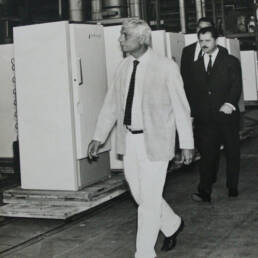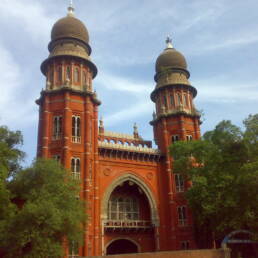During a bleak winter morning in 1964, Calcutta rose in unison against a group of writers. “Five scruffy young poets,” whose works were deemed dangerous and dirty, were marched off to court.
According to Time magazine, in its article titled “India: The Hungry Generation”, the group’s published work was so unfettered and raw that it “would have melted even Vātsyāyana’s pen.”
The charges against the poets were eventually dropped, but how did these writers end up in jail in the first place? A little bit of caffeine and a whole lot of angst might have had something to do with it.
In 1962, Allen Ginsberg found himself surrounded by a group of passionate writers at the Indian Coffee House located on College Street, Calcutta. In attendance were Shakti Chatterjee, Sunil Ganguly, Utpal Kumar Basu, and Tarapada Roy.
Ginsberg was quite famous at the time; he was among a group of writers and poets who took it upon themselves to change America’s institutionalized cultural norms in the 1950s. They came to be famously known as the Beatniks or the Beat Generation.
In 1955, Ginsberg came out with perhaps what is considered to be the seminal work of that generation, his radical poem titled “Howl.”
Soon after the poem’s release, its publishers were arrested on charges of obscenity. After a long trial and countless headlines, “Howl” was finally given the clean chit. And just like that the Beat Generation found themselves spearheading a cultural revolution.
Interestingly, Ginsberg and his tribe’s wild style of writing found a parallel voice in that small band of Bengali writers and poets, who were already challenging narrow societal perspectives that limited Bengali consciousness.
Shakti and brothers, Samir and Malay Roy Chowdhury, were already part of a group who called themselves the “Hungry Generation”. The inspiration for the word ‘Hungry’ was believed to be 14th-century English poet, Geoffrey Chaucer.
What the Beatniks were doing in America the Hungry Generation was doing in Calcutta. Indian Coffee House became their unofficial head office. Writing in the “language of life,” which was deemed vulgar and raw, they tackled sexuality and the hollowness ailing Bengali intellectualism.
The movement, which initially started out as a poetry movement, soon moved on to other forms of literature. The group also published bulletins and manifestos from time to time.
Sometimes, they would send symbolic masks to literary figures in the city with a note asking them to take off their invisible masks and use the gifted ones instead.
They would also send blank sheets to newspaper houses, requesting them to publish it. Poetry sessions were regularly held at Howrah Station, in the suburbs of Calcutta, and even on street corners, sending seismic shockwaves across Calcutta’s literary circles.
The Bengali literary establishment promptly labeled them as outcasts, but all was not lost. Lawrence Ferlinghetti, who had earlier published Ginsberg’s “Howl”, published some of their work and so did Kulchur, a foreign literary magazine known for its contemporary commentaries.
The group’s continuous anti-establishment stance did not go down well among Calcutta’s literary circles. FIRs were lodged, questions were asked, and then came the arrests. Five among the group were arrested in late September 1964.
International support poured in, with Ginsberg having said to have contacted literary figures asking them to support the group. The court case went on for eight months and though nothing concrete was established, the movement was not to be the same again.
Many, including Shakti Chatterjee, left the group and by 1965 the movement eventually died down. The efforts of the Hungryalists though did not go in vain. Such was their impact that regional authors took up the pen to write on diverse topics, including homosexuality.
It is because of them that there was an explosion of magazines on the Bengali literary scene, which went on to serve as platforms for several unknown authors and poets. The Hungryalists had spawned an authentic, albeit dissident voice.
Sources:
- Much Ado Over Coffee: Indian Coffee House Then and Now, by Bhaswati Bhattacharya (Social Science Press); India:
- The Hungry Generation, Friday, Nov. 20, 1964, https://content.time.com/time/subscriber/article/0,33009,830799,00.html



